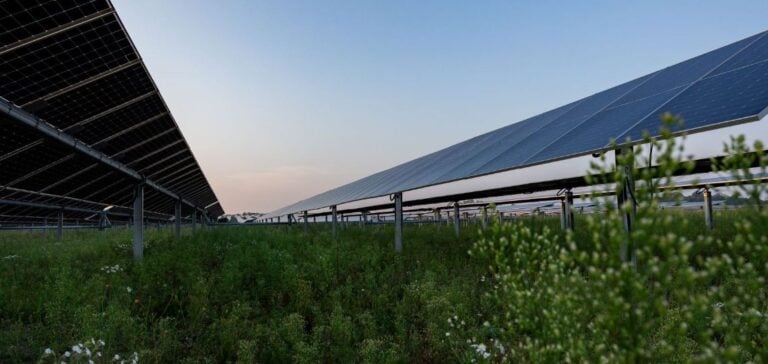Exus Renewables, a recognized player in the renewable energy sector, has announced the acquisition of the Cibele solar farm, a 130 MW ready-to-build project located in the municipalities of Rio Maior and Cadaval, Portugal. This project represents a strategic asset for Exus, which continues to strengthen its energy footprint in Europe.
Construction of this facility is scheduled to begin in the coming months, with commissioning expected in 2026. The location of Cibele also offers an opportunity to integrate a wind component in the future, aligning with Exus’ vision of optimization through energy hybridization.
A favorable context for solar energy
Portugal’s renewable energy market is experiencing rapid growth, supported by ambitious targets to reach 20 GW of production capacity by 2030. This project, which aligns with these national ambitions, is seen as a significant step in accelerating the country’s energy transition.
Strategic partnerships
Lightsource bp, the original developer of the project, maintains an active presence in Portugal with a portfolio exceeding 2.5 GW of projects at various stages of development. According to Miguel Lobo, Country Head for Portugal at Lightsource bp, “This operation illustrates how partnerships between developers and investors can play a key role in the energy transition.”
Exus Renewables also highlighted the importance of this acquisition in its long-term strategy. With over 6 GW of assets under management in Europe, the company continues to invest in strategic projects to diversify and strengthen its portfolio.
A professional framework for the transaction
This acquisition involved top-tier experts. Cuatrecasas advised Exus Renewables on legal matters, while Lightsource bp relied on PLMJ, Capcora, and Enertis for technical and financial guidance.
With projects like Cibele, Portugal positions itself as a key player in the European energy transition, attracting significant foreign investments while pursuing its own climate goals.






















